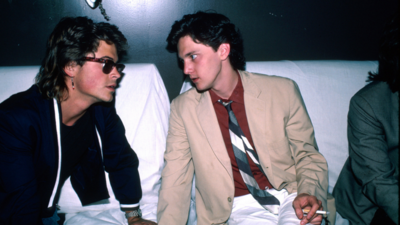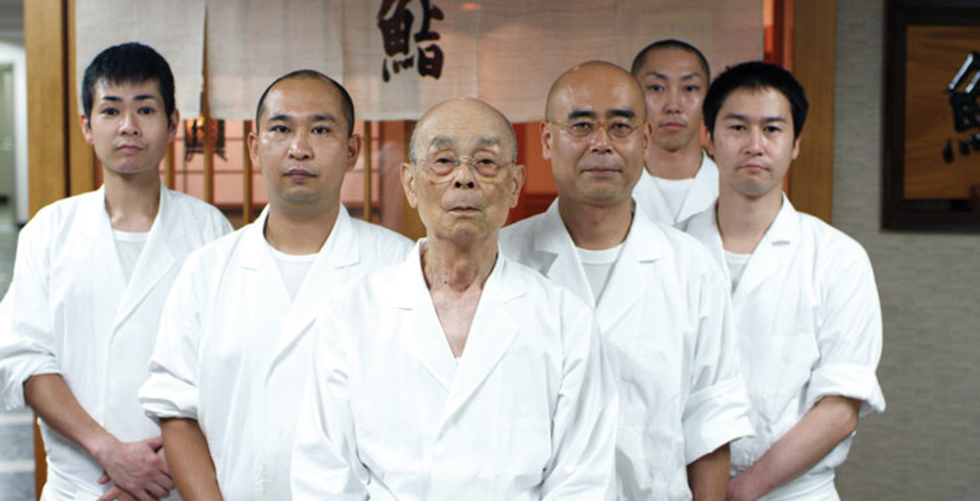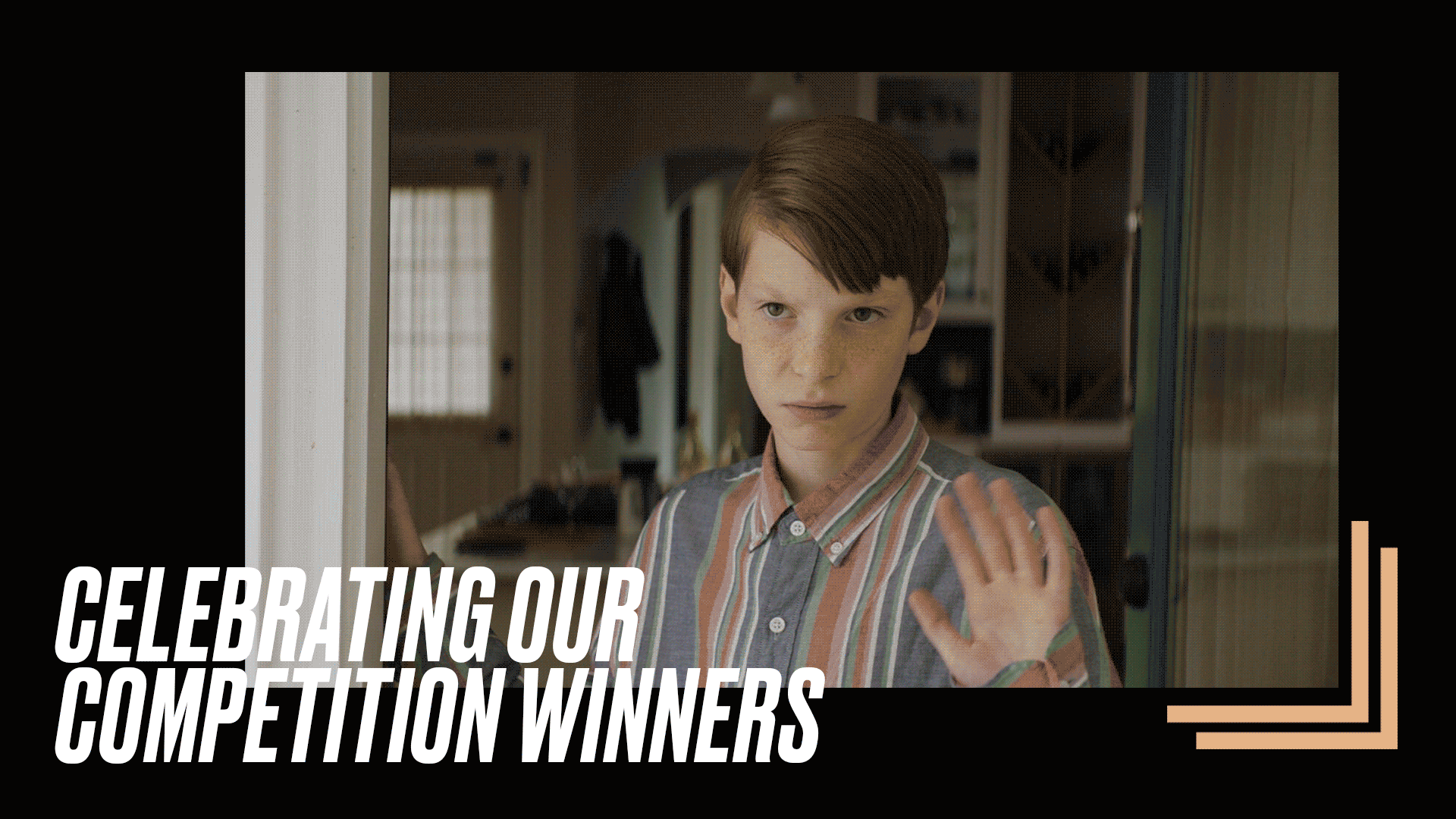
BY EMILY ACKERMAN |
A Movie that Demands Dinner Plans
For Jiro Dreams of Sushi, David Gelb spent a year documenting sushi master Jiro Ono and savoring the props between takes. Someone had to. Opens 3/9.

Note: This interview originally ran as part of our coverage of the 2011 Tribeca Film Festival. Jiro Dreams of Sushi opens on Friday, March 9, at the Lincoln Plaza Cinemas and the IFC Center, and on Friday, March 16, in Los Angeles at the Nuart Theatre, with a national rollout to follow.
Tribeca: Tell us a little about Jiro Dreams of Sushi.
David Gelb: This is a film that is not only about the art of sushi, but also about family, succession, and tradition. Jiro's message about the value of hard work, patience and vision applies not only to sushi, but also to any form of creation. The story of a son living in the shadow of his father is something that many people can identify with. From the beginning, I wanted to make this a film accessible to anyone, even those who don't like sushi or have never tried it.
Tribeca: How did you first hear about Sukiyabashi Jiro? What inspired you to tell this story?
David Gelb: The first person to specifically tell me about Jiro was the great French chef Daniel Boulud. I had mentioned to him that I wanted to make a film about sushi chefs, and Daniel told me that Jiro is the man to see. My own research certainly confirmed that. As soon as I ate in the restaurant with the food writer Masuhiro Yamamoto and met Jiro's son, I knew that I had the subject of the film.
Tribeca: Was Jiro initially receptive to being the subject of a documentary? It seems surprising the shokunin would allow cameras into his already cramped 10-seater restaurant, especially while guests were present.
David Gelb: This film exists because of the help of the food writer Masuhiro Yamamoto. After conveying my vision to Yamamoto, he convinced Jiro to allow me to film in the restaurant ever day for two months over the course of a year. I promised that I would be a fly on the wall, and I did my best to keep that promise, starting by shooting on a small DSLR camera. Jiro was watching me very carefully at first, and I was careful to be persistently humble and apologetic for my intrusion. I like to think that he picked up on my passion for sushi and dedication to the project, and over time he opened up to me more and more. As our trust developed, so did the size of the camera, and I was fortunate to be able to shoot most of the film on the fantastic Red One. Moving around the small restaurant with large equipment was at first difficult, but once I learned to predict their movements, I found my stride.
Tribeca: What inspired your choice of pairing Jiro’s craft with classical music? They complement one another beautifully.
David Gelb: The score of the film is a combination of both classical and modern orchestral pieces. The classics reflect the grand, traditional splendor of Jiro's work. The modern pieces by Philip Glass and Max Richter all have a repetitive element to them, which is an expression of Jiro's work ethic. Every day they do exactly the same thing, while still looking for small ways to improve. The music of Philip Glass especially mirrors this mentality, with repetitive phrases that grow and build to greater and greater heights.

Tribeca: We have to ask: Did you get to taste his sushi? Was it rhapsody in a roll?
David Gelb: Out of respect for Jiro's clientele, most of the shooting had to be done before and after business hours. Because of this, I actually ate the majority of the sushi that appears on screen. Somebody had to eat it! Jiro and his son Yoshikazu were also kind enough to treat me to a sushi course or two without the camera rolling, so I could simply experience the meal like a normal customer.
When you eat a sushi course at Sukiyabashi Jiro, every bite is ecstasy. There is really no other restaurant like it, although some come close. Every single ingredient, be it the rice, seaweed, wasabi, soy sauce or fish, is provided by the undisputed master of that specific field. Jiro has spent over half a century not only building relationships with these specialists to get the absolute best ingredients in the world, but also creating the perfect balance between the ingredients. What you taste when you eat one of these jewels in nothing short of perfect satisfaction. That satisfaction is the definition of the often-misunderstood word, “umami.” Keep in mind, however, that the experience is not for everybody. The meal is at least $300 per person and only lasts for about half an hour. Jiro has no tolerance for special requests, and they don't serve westernized sushi or appetizers. You have to come prepared.
Tribeca: What's the craziest thing (or "lightning strikes" moment) that happened during production?
David Gelb: After the first portion of shooting, we realized that the story is just as much about Jiro's sons as it is about Jiro himself. Because I only have modest skills in Japanese lanugage, as I watched the translated material, the revelations were fast and frequent. Fortunately, I was able to apply everything I discovered after the first shoot when I returned to Japan to finish the film.
Tribeca: What’s the biggest thing you learned while making Jiro Dreams of Sushi?
David Gelb: The most important thing I learned is to keep your head down and just work as hard as you can. Be humble and try to learn as much as possible from the people you admire. You can't control whether or not your work will receive accolades and glory, so it's best not to get distracted by that kind of stuff. You have to focus on the present and keep trying to improve the work itself.
Tribeca: What do you want audiences to take away from Jiro Dreams of Sushi?
David Gelb: There are a couple of fundamental themes that I think the audience should walk with. First off, I want to dispel the myth that sushi is simply fish and rice. Sushi is just as complex, if not more so, than any other style of cuisine. It takes ten years of training to get a grasp on just the basic fundamentals of making good sushi. The film sheds light on why this is.
However, the main thing I learned from Jiro is the value of hard work, and improving your skills. You have to set aside your aspirations of fame and fortune, and just focus on the work. There is no such thing as overnight success. You have to just keep working day after day, and not be afraid to honestly judge yourself, and be willing to throw it all away and start over again just to do it slightly better. Talent is important, but without hard work it is meaningless. This philosophy applies to everything, and we certainly applied it in the making of the film itself.

Tribeca: What's your advice for aspiring filmmakers?
David Gelb: Really, practice makes perfect. Since I got out of school, I've been constantly working on sets in every capacity, from assistant directing to sound recording to camera assisting, in addition to shooting and editing dozens of behind-the-scenes clips. I believe that in order to direct, you have to understand exactly what each crew member is supposed to be doing, and how all the specific parts of a film works to form the whole.
Though I didn't edit Jiro Dreams of Sushi, my experience as an editor made it much easier to work with the editor and to form the movie the way I imagined it. Learn to use the camera, learn to use the editing software, and practice as much as possible. Show people your work and watch how they respond. This is the only way to begin to understand how to communicate with the audience.
From my experience, filmmaking is a process of trial and error. I think a good director must have the courage to embrace failure, learn from it, and start over again and again.
Tribeca: What makes Jiro Dreams of Sushi a must-see?
David Gelb: I hope that as many people see the film as possible, because I think that Jiro's message is incredibly valuable, and because I want to show the world what real sushi is all about.
Jiro Dreams of Sushi is both emotional and informative. It has a family story that many can relate to, and is shot with a sense of big-screen beauty and spectacle that is rarely seen in documentaries. Jiro's philosophy is one that you want to apply to your own life. The film provides a rare window into the intimate world of a true genius and innovator. You will see sushi as you have never seen it before. My only warning is to avoid seeing the film on an empty stomach.
Jiro Dreams of Sushi opens on Friday, March 9, at the Lincoln Plaza Cinemas and the IFC Center, and on Friday, March 16, in Los Angeles at the Nuart Theatre, with a national rollout to follow.
![]() Like Jiro Dream of Sushi on Facebook.
Like Jiro Dream of Sushi on Facebook.
 Check into Jiro Dreams of Sushi on GetGlue.
Check into Jiro Dreams of Sushi on GetGlue.
Watch the trailer:

